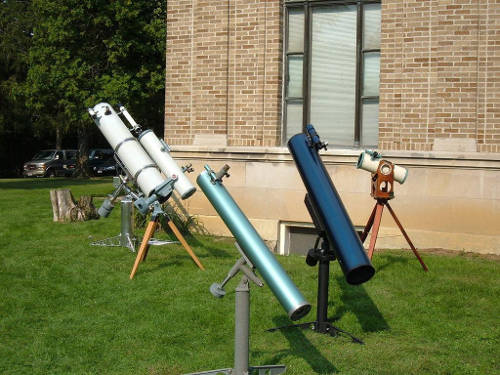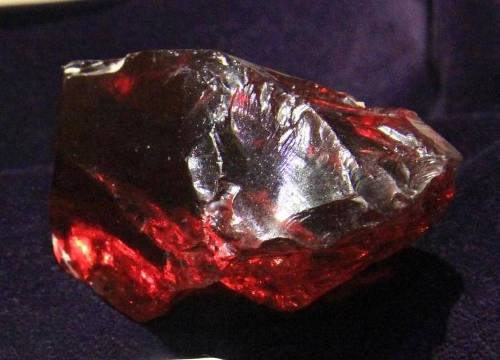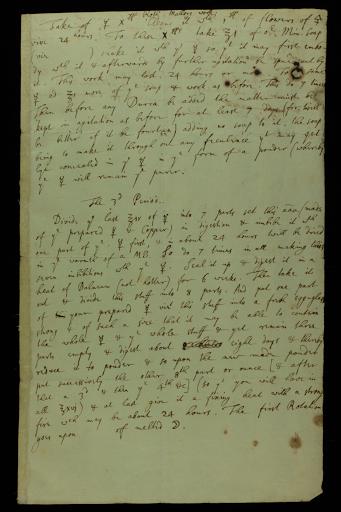Sir Isaac Newton: The Brilliant Heretic
Newton's decoded private writings show that the famous mathematician was actually a different man, and scientist, than we remember from school. Now we know that Newton studied alchemy and applied creative problem solving to discover the laws of gravity.
Sir Isaac Newton would have loved Harry Potter.
Sure, we know Newton as a brilliant scientist and mathematician. I mean, gravity, right?
By the age of 26, he had already defined the laws of gravity (the invisible force that keeps our planet from straying away from the Sun—and no, that whole thing about the apple falling on his head is a myth), and invented calculus (at roughly the same time as Gottfried Leibniz, who would later become his enemy in the scientific field. The official verdict is that both men invented calculus independently and Newton happened to publish his works after Leibniz's. Frenemies aren't limited to the 21st century, after all)—all while studying in his dorm room at University of Cambridge in Cambridgeshire, England.
Later in life, Newton would be credited with discovering that white light is made up of the entire color spectrum and transforming Galileo's 500-year-old telescope into the contemporary model we still use today. His discoveries were revolutionary for his time and he was quickly accepted as a Fellow of Gresham College's prestigious Royal Society, which later published one of his most famous works, Principia Mathematica.

Newton's original telescope (far right with the brown tripod) compared to other modern-day Newtonian telescopes. Photo courtesy of Wikimedia Commons.
If it were not for Newton's discoveries, our economy might have been based on an entirely different numerical system because we use calculus in the stock market. With a little help from a concept called the second derivative—and some arithmetic—we can calculate how fast the market is moving and in which direction. Our satellites are made using Newton's telescope design so that we can monitor solar activity. Newton's studies on gravitational forces have helped us better understand how we can fly planes.
But, truth be told, Newton was especially fascinated by something everyone who loves Harry Potter knows about, The Philosopher's Stone.
Yup, Newton believed you could create gold from metal—in fact, some believe that his scandalous alchemical work—and a practice of thinking outside of "settled" science, helped him shape his three laws of gravity.
From Mercury to Gravity
In a remarkable point of fact, Newton authored more notes on alchemy and theology than he ever had on physics!

The Making of Harry Potter, The Philosopher's Stone. Photo courtesty of Wikimedia Commons.
During the time he spent studying alchemy in a private workshop near Cambridge, Newton developed a comprehensive list of alchemical recipes. Like Leonardo da Vinci, he also coded his notes to hide his recipes from any curious onlookers. From what we understand of Newton's notes, he studied George Starkey's work on sophick mercury, which he believed to be the most important ingredient in the Philosopher's Stone.
The sophick mercury was also known as "philosophic" mercury. Alchemists believed this mercury could break metals down into smaller components that could then be used to make different metals. This process was key to creating the philosopher's stone, the legendary substance that could transform base metals like lead into gold.
Parliament actually illegalized alchemy for fear that amateurs would inflate the market with "fake" gold, thus devaluing the pound! At the time of its creation, alchemy and chemistry were practically interchangeable, and alchemy itself was considered pseudoscience—or a set of beliefs or methods that are mistakenly believed to be based on scientific fact!
Knowing this, the fact that the world's most renowned scientist of his day had an interest in this so-called "pseudoscience" has both amazed and dumbfounded modern historians.
Disputing the Bible
In addition to alchemy, Newton spent his free time interpreting the Bible—but not as the Church of England would sanction interpretations of God's word. Newton believed that science and religion were one-and-the-same, and that the code to nature was embedded in scripture. While he believed in God, he took issue with Biblical text he believed was contradicted what he knew about the real world. For example, he did not believe that people should worship the Holy Trinity because Jesus Christ was not on the same level of importance as God Himself.
Additionally, Newton calculated that the world would end in the year 2060. He determined this from his study of the Book of Daniel in the Old Testament—but not based on any scientific proof—so don't reserve a SpaceX seat to Mars just yet!

Isaac Newton alchemical manuscript page AQ17. Photo courtesty of Wikimedia Commons.
A Secretive Genius
From what we now know, Newton hid key insights into his genius from the public eye for fear of ridicule. Ultimately, this recent discovery of Newton's writings on alchemy and biblical interpretation not only changes how we see Newton as a scientist, but reveal how he experimented with unorthodox methods of achieving his goals.
Far from limiting him in his scientific investigations, his creative experimentation with alchemy helped furthermore strictly scientific pursuits as he went on to discover the three laws of gravity. Imagine what mysteries scientists could tackle by approaching problem-solving like Sir Isaac Newton!

The Royal Mint Exhibit "Coins & Kings" at the Tower of London, 2017. Photo credit: Lindsay Bernhards.
Centuries after his death, Newton's presence is still very much felt in England. The Tower of London dedicated an entire exhibition to the Royal Mint where Newton worked as Warden (which is ironic considering his secret fascination with alchemy) by request from the Chancellor of the Exchequer, Charles Montague. Tourists can visit his burial place in Westminster Abbey. The University of Oxford's Museum of History and Science shows off Newton's contributions to what we currently understand about the world.
With new understandings of the brilliant physicist's fascination with the Philosopher's Stone, perhaps it is fitting that we can also find Harry Potter present in Oxford, by the likes of New College and the Christ Church dining hall, which inspired the Great Hall at Hogwarts.
Mixing wonder and imagination with science and math seems to be a formula for magic of the type that advances our human understanding. In a place where genius and creativity thrive, is it any mystery they can create a very modern kind of alchemical reaction?!
Want to Learn More?
- "Alchemy" In Our Time. BBC., 24 Feb, 2005. http://www.bbc.co.uk/programmes/p003k9bn. Accessed on 13 Aug, 2017.
- Greshko, Michael. "Isaac Newton’s Lost Alchemy Recipe Rediscovered" National Geographic, 6 Apr, 2016. http://news.nationalgeographic.com/2016/04/160404-isaac-newton-alchemy-mercury-recipe-chemistry-science/. Accessed on 14 Aug, 2017.
- "Isaac Newton" History.com. A&E Television Networks, 8 Jul, 2015. http://www.history.com/topics/isaac-newton. Accessed on 4 Aug, 2017.
- Humanist Society of Australia, Inc.. "Isaac Newton – The Dark Heretic (2003)" YouTube, 11 Jul, 2014. https://www.youtube.com/watch?v=OSolPNn0G7M. Accessed on 14 Aug, 2017.
- "Isaac Newton: The man who discovered gravity" BBC, 30 Nov, -0001. http://www.bbc.co.uk/timelines/zwwgcdm. Accessed on 13 Aug, 2017.
- "Isaac Newton" The Royal Mint Limited, 5 Sep, 2007. http://www.royalmint.com/olympic-games/explore-your-coin/isaac-newton. Accessed on 29 Aug, 2017.
- "Newton, Isaac (1642-1727)" Eric Weisstein's World of Biography. Wolfram Research, 30 Nov, -0001. . Accessed on 14 Aug, 2017.
- Nix, Elizabeth. "9 Things You May Not Know About Isaac Newton" History.com. A&E Television Networks, 5 Jul, 2015. http://www.history.com/news/history-lists/9-things-you-may-not-know-about-isaac-newton. Accessed on 14 Aug, 2017.
- Pelta-Heller, Zack. "Sir Isaac Newton & The Philosopher's Stone" Biography.com. A&E Television Networks, 31 Mar, 2017. https://www.biography.com/news/isaac-newton-alchemy-philosophers-stone. Accessed on 29 Aug, 2017.
- Pruitt, Sarah. "Rediscovering the Alchemy of Isaac Newton" History.com. A&E Television Networks, 8 Apr, 2016. http://www.history.com/news/rediscovering-the-alchemy-of-isaac-newton. Accessed on 12 Aug, 2017.
- "Pseudoscience" Merriam-Webster, 30 Nov, -0001. https://www.merriam-webster.com/dictionary/pseudoscience. Accessed on 14 Aug, 2017.
- Williams, Liz. "A new online Isaac Newton archive sheds light on an era when science and faith were undivided" The Guardian. Guardian News and Media Limited, 23 Mar, 2012. https://www.theguardian.com/commentisfree/belief/2012/mar/23/isaac-newton-archive-science-faith. Accessed on 31 Aug, 2017.